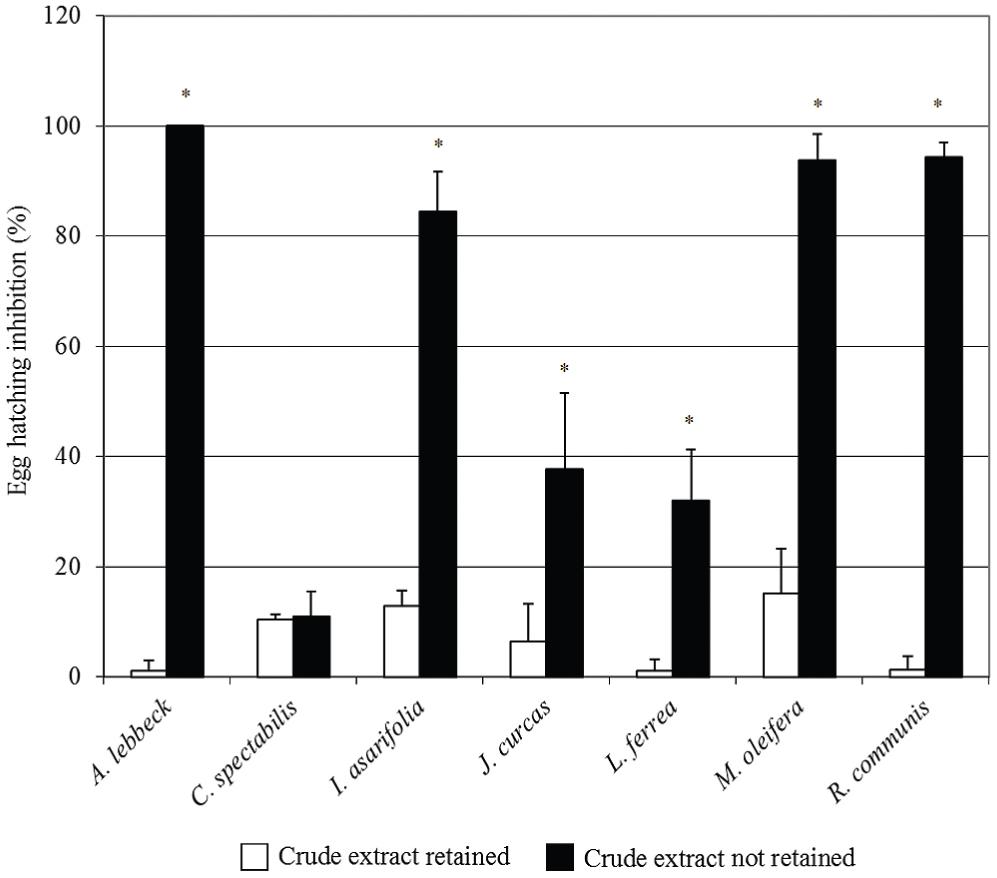Bioactive molecules of plant species are promising alternatives for the chemical control of gastrointestinal nematodes in ruminants. Extracts of native and exotic seed species from Brazil's semi-arid region were tested in vitro in an egg hatch assay and the bioactivity of their proteins was investigated. Each seed species was subjected to three extractions with three types of solvents. All the seeds showed ovicidal activity, which varied according to the solvents. Higher ovicidal activity was found in the molecule fractions of low molecular weight (<12 kDa) for Albizia lebbeck, Ipomoea asarifolia, Jatropha curcas, Libidibia ferrea, Moringa oleifera and Ricinus communis(P<0.05, Bonferroni test). The two fractions of Crotalaria spectabilis showed the same ovicidal activity (P>0.05, Bonferroni test). Hemagglutinating activity was detected in the fractions of C. spectabilis and M. oleifera fractions, hemolysin activity in the A. lebbeck and M. oleifera fractions, serine protease inhibitory activity in the A. lebbeck, I. asarifolia, J. curcas, M. oleifera and R. communis fractions, cysteine protease inhibitor activity in the M. oleifera fraction, and no protein activity in the L. ferrea fraction. The results of this work reveal new plant species with a potential for use in controlling nematode parasites in goats, thus opening a new field of research involving plant protein molecules with ovicidal properties.
Goats; nematodes; egg hatch assay; lectin; protease inhibitors; hemolysin



